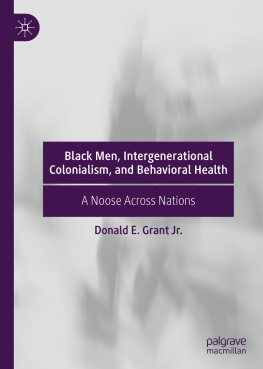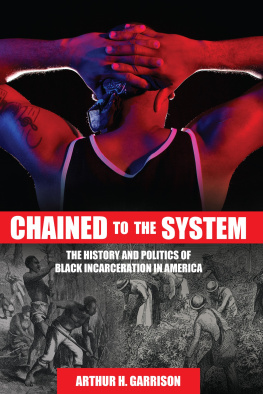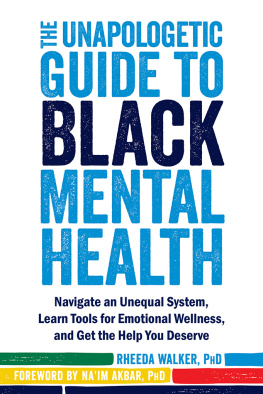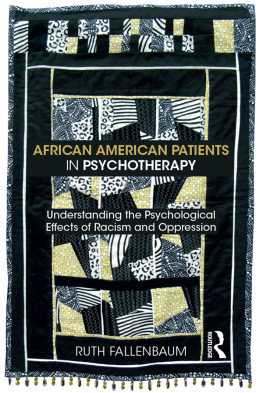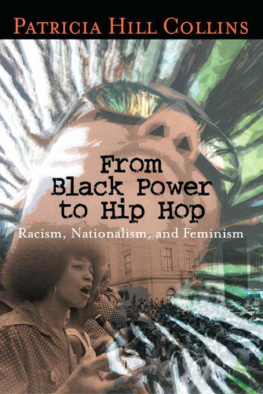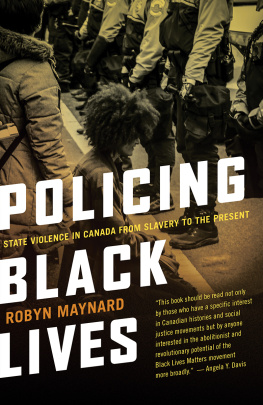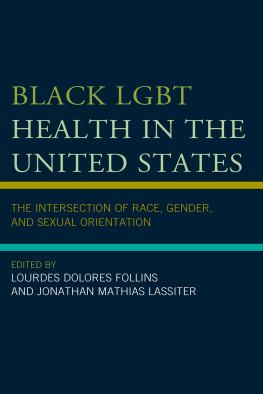Donald E. Grant Jr.
Mindful Training Solutions, Los Angeles, CA, USA
Pacific Oaks College, Pasadena, CA, USA
ISBN 978-3-030-21113-4 e-ISBN 978-3-030-21114-1
https://doi.org/10.1007/978-3-030-21114-1
The Editor(s) (if applicable) and The Author(s) 2019
This work is subject to copyright. All rights are solely and exclusively licensed by the Publisher, whether the whole or part of the material is concerned, specifically the rights of translation, reprinting, reuse of illustrations, recitation, broadcasting, reproduction on microfilms or in any other physical way, and transmission or information storage and retrieval, electronic adaptation, computer software, or by similar or dissimilar methodology now known or hereafter developed.
The use of general descriptive names, registered names, trademarks, service marks, etc. in this publication does not imply, even in the absence of a specific statement, that such names are exempt from the relevant protective laws and regulations and therefore free for general use.
The publisher, the authors and the editors are safe to assume that the advice and information in this book are believed to be true and accurate at the date of publication. Neither the publisher nor the authors or the editors give a warranty, express or implied, with respect to the material contained herein or for any errors or omissions that may have been made. The publisher remains neutral with regard to jurisdictional claims in published maps and institutional affiliations.
This Palgrave Macmillan imprint is published by the registered company Springer Nature Switzerland AG.
The registered company address is: Gewerbestrasse 11, 6330 Cham, Switzerland
This book is dedicated to my son, my brother, my father, my grandfather, my uncles, my god sons, my fraternity brothers and every other Black man in the world who has ever been told explicitly or implicitly that he is anything less than a King.
Preface
The experiences that occur across ones lifespan shape them in ways that often remain elusive until the luxury of reflection arises. In spite of our awareness, or lack thereof, these experiences imprint our personhood in very predictable ways. It wasnt until I was an adult, had lived away from home for a decade and traveled the world that I began to see the imprints of my experiences on my life. It would be in subsequent decades that I would begin to understand them, the ways they intertwined with one another and the varied ways they manifested themselves in my world and in the worlds of others.
1989, the number, another summer. Sound of the funky drummer. Music hitting your heart cause I know you got soul Public Enemy screamed into my eighth grade ears. They continued, What we need is awareness, we cant get careless. You say what is this? My beloved lets get down to business. Mental self-defensive fitness. That same year, five teenagersall boys of colorwere charged with the assault and rape of a female jogger in New Yorks Central Park. They would later become known as The Central Park Five. The boys were all convicted (in two separate trials) and jailed in 1990 even after DNA evidence from the rape kit confirmed their lack of involvement. In 1992, Spike Lee released Malcom X , an autobiographical sketch portraying the life of the noted civil rights leader. I was a freshman at City Honors High School, a diverse honors magnet school on the eastside of Buffalo, NY. Buffalos eastside, where I also grew up, is a historic community where many Black people were shrouded in safety along the Underground Railroad and where their children raised their children after The Great Migration. I wore my Malcolm X medallion and was unapologetically proud of my blackness.
I was a rising senior at Hampton University the summer of 1998 when James Byrd Jr. was murdered by three White supremacists in Jasper Texas . Byrd was still alive as his murderers dragged his body along an asphalt road for three miles. I can still remember feeling my naivetys naivety melting from my body as I learned the details of his murder. By this time, I had seen Do the Right Thing and Boyz in the Hood ; hell, I was a boy in the hood. I had read James Baldwin, Alice Walker, August Wilson and Cornell West. I could reflect on my feelings as I touched former plantations during my familys annual Spring trip to Shelby, North Carolina. Even with all this, Byrds lynching was something new to accommodate into my recently adulted brain.
I was ending my second year as a Baltimore City Public School science teacher during the summer of 2002 when HBO released its smash hit The Wire , which was also set in Baltimore. That same year, the sentences of The Central Park Five were commuted after an incarcerated murderer and serial rapist confessed and provided corroborating DNA evidence. I was working with underserved kids, in an over-extended city that ran an under-resourced school district. I knew about injustice, racism and discrimination. What I didnt know was the depth with which these things lived in the stories of our souls.
As I traveled the world I learned that my unique experience was less unique than I thought. Sure, almost all Black men experience racism and discrimination. I knew that. What I didnt know was the scope, depth and deliberateness of the sustainable models created to impact contemporary Black men and boys in every generation across every continent where they live. I have sat with Black men in their hometowns from Paris to London and Brighton. I have broken bread with brothers from Melbourne to Toronto and Florence. I drank whiskey with Black men in their local bars in Cape Town and Malaga. Me and these men shared a common experience. A visceral one that results in a proverbial head nod familiar to us all. When our spoken languages of origin failed to translate directly, our souls experiences seemed to share a common lexicon. Each of us had experienced development in a geographic space that had been deliberately structured to maintain our oppression and separation, a fact that many of us were left blind to for decades. A hidden and insidiously veiled agenda that effectively cloaks the ways in which the ecological experiences across our lifespans impact who we are to become.
After I left the classroom, I practiced as a clinical psychologist for the Los Angeles County Department of Mental Health. It would be here that I would truly see the synergistic systems of disenfranchisement at play; it forced a reflection of my own. I began to remember the intergenerational nature of poverty, substance abuse and school attrition I saw in my community as a kid. Here I was, an adult, living thousands of miles away from where I was born but seeing the same thing, years later. There was something to this code that required breaking, something that would come in the following 2014 email:
Good Afternoon Dr. Grant,
I do not know if you remember me I was one of your students back when you were a science teacher I just wanted to contact you to say thank you. You may not remember but you had a talk with me right after I failed your final exam. You spoke with me about seeing my potential and told me that everything in life had to be earned. I consider that conversation I had with you that day one of the defining moments of my life. Even though you gave me some leeway (thankfully) with my grade, I assure you the talk you had with me that day was not in vain.

